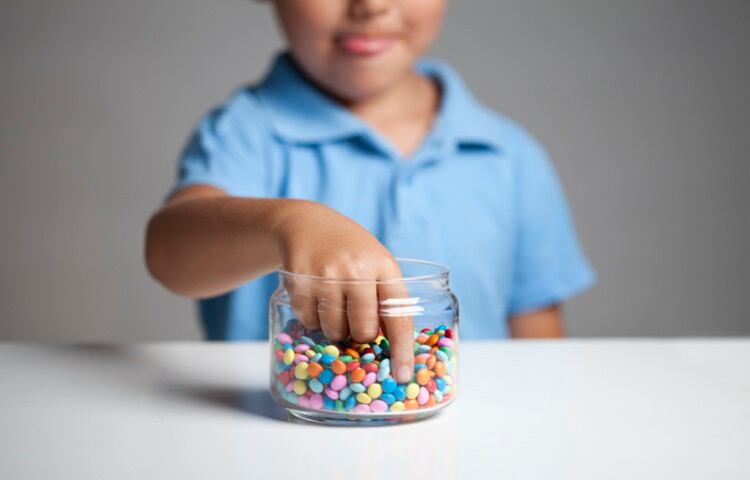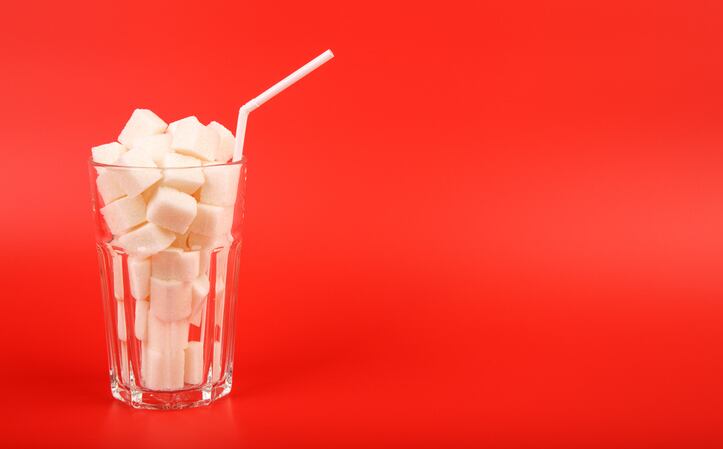With the tagline “make a swap when you next shop”, the Change4Life campaign aims to help parents make ‘everyday swaps’ both in supermarkets and online – from higher-sugar drinks, biscuits, breakfast cereals and yoghurts to healthier alternatives.
According to Public Health England (PHE), which launched the expanded strategy today (January 2), the campaign responds to children’s excessive consumption of sugar in the UK.
Children in England are consuming more than double the recommended intake of sugar per year, which equates to an excess of eight sugar cubes – or approximately 32g of sugar – per day, reported Public Health England (PHE).
“Children have already exceeded the maximum recommended sugar intake for an 18 year old by the time they reach their tenth birthday,” the agency continued.
Change4Life 'top sugar swap' suggestions
- a higher-sugar yoghurt (for example a split-pot) for a lower sugar one, to halve their sugar intake from 6 cubes of sugar to 3
- a sugary juice drink for a no-added sugar juice drink, to cut back from 2 cubes to half a cube
- a higher-sugar breakfast cereal (such as a frosted or chocolate cereal) for a lower sugar cereal, to cut back from 3 cubes to half a cube per bowl
PHE chief nutritionist, Alison Tedstone, described the initiative as a “straightforward solution” for busy families: “Children are consuming too much sugar, but parents can take action now to prevent this building up over the years.
“…By making simple swaps each day, children can have healthier versions of everyday foods and drinks, while significantly reducing their sugar intake,” she added.
Smartphone app and ‘good choice’ badge
Alongside its existing ‘sugar swap’ initiatives, PHE has launched a Change4Life Scanner app, offering consumers access to additional nutritional details on their smartphone while shopping.
A ‘Good Choice’ badge, attributed to certain healthier alternatives in store, online, and in advertising, will also help parents identify lower-sugar options.
Petits Filous and Soreen (malt loaf) are among the products to display the ‘Good Choice’ badge, along with a selection of Change4Life partner Nestlé’s breakfast cereals.
“The ‘Good Choice’ badge, which shoppers will see alongside ‘Shredded Wheat’ and low sugar ‘Cheerios’, is designed to help families make more informed choices when buying breakfast cereal for their family,” said Toby Baker, Nestlé Cereals’ marketing director, UK and Australia.
The agency has also advised families examine ‘traffic light’ labels, and select products with a ‘green light’ for sugar – demonstrating low levels of sugar per 100g.
Sugar reduction in UK
Change4Life marks the government’s latest initiative aimed at reducing calorie consumption in the UK.
In March, 2018, the PHE and the Department of Health and Social Care (DHSC) announced a policy package targeting 20% calorie reduction by 2024. The following month, the UK introduced its two-tiered Soft Drinks Industry Levy (SDIL), comprising an 18p per litre rate for beverages containing 5g sugar per 100ml or more, and 24p for those containing 8g or more.
For Action on Sugar researcher, Kawther Hashem, however, more can be done at a governmental level to reduce sugar consumption in the UK.
“Encouraging parents to halve their children’s sugar intake from everyday food and drink products is applaudable and we fully support the campaign,” said Hashem.
“However, if we are to curb the UK’s escalating childhood obesity epidemic then the government must enforce more hard-hitting tactics such as mandatory uniform coloured coded labelling on front of packs, product reformulation with a 50% reduction in sugar across all products, a tax on confectionery and ensure that only healthy products are marketed and advertised," she continued.
FDF: Industry is ‘fully engaged’
According to the Food and Drink Federation (FDF), the UK’s food and non-alcoholic drinks manufacturing industry is “fully engaged” in the government’s sugar reduction initiatives.
“PHE has recognised that many companies have reduced the sugar content in their products. In fact, FDF members are now selling 135,000 tonnes of sugar less than in 2013 – the equivalent of 34 billion teaspoons,” said FDF head of UK diet and health policy, Kate Halliwell.
However, industry is concerned that advertising restrictions could impede certain aspects of PHE’s latest campaign, we were told.
“What is concerning is that many of the alternatives being suggested by PHE as part of their Change4Life programme are currently under threat of tighter advertising restrictions. Consumer awareness of lower-sugar options will be considerably impacted if these products cannot be advertised,” said Halliwell.





